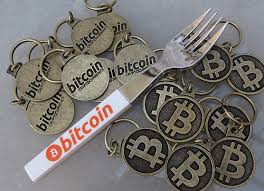A new kind of money: understanding the roots of Bitcoin
Published on March 29,2017

Paper currency has become a major impediment to the smooth functioning of the global financial system. Cash is the antsy ferret of society wealth, tricky to be physically secure and once liberated in the wild is almost impossible to get back. And money as technology has changed a lot with time. Sometimes back, a one day’s budget would call for a bulging pocket, however, it’s nowadays possible to shop for items and services e.g. groceries, pay rent, order lunch, pay movies, board a plane, pay taxi without fumbling with notes and coins. The world is fast embracing a fact that physical currency should be an exception rather than the rule.
We are in a generation that needs no introduction to a cashless life. To help in adoption of a cashless society a decentralized digital currency operating on the Internet only and controlled by no authority was developed by a Japanese named Satoshi Nakamoto. It is known as BITCOIN. BITCOIN is perhaps the well-known cryptocurrency in the world (a virtual currency protected by cryptographic method), a fast and reliable on- the- internet payment system based on advanced technology and independence.
Initially, Bitcoin was only relevant for mathematicians and cryptographers (those who unravel ciphers). It’s today a proof that existence of electronic money is possible with no guaranteed backing. An electronic equivalence of gold due to its ever increasing value and tireless effort required to mine it. Initially, at the time of its development in 2009 bitcoin’s price ranged from 100-150 USD. The price currently stands at 1300 USD. This shows the ups and downs of the bitcoin trade exchange, the great challenge in surfing and acceptance of bitcoin at the beginning. Its transaction was rare and infrequent initially. Its popularity was made by MtGox, a Japanese exchange firm and an online market called Silk at its early development stage. Bitcoin has since gone legal and is now independent of any exchange. Its use is embraced by many businesses and stores globally. Consider the below figure.

This cryptocurrency is fast replacing the expensive and hard-to-access banking services. The blockchain technology has been a startup for bitcoin use allowing millions of people to create a wallet with it for bitcoin transactions. It has a trust for data storage on various assets and financial transactions.
Bitcoin, unlike other currencies, is not printed by any central bank neither does it follow monetary rules instead, it is being mined and issued digitally. Mining of bitcoin is performed by using computational capabilities in a distributed network (advantages of cloud computing). The bitcoin code contains a limit that sets the maximum number of bitcoins to be mined at 21 million (differentiated into almost insignificant units). Generation of the last bitcoin stops unit change. This limited number of bitcoin is quite sufficient for everyday payment. Any person from anywhere across the globe may run the bitcoin mining script from their computer. The source code of the script is openly publicized and anyone may see how it works.

In summary, the advantages of bitcoin are as follows,
High safety level; No one can block a bitcoin wallet with the blockchain technology authority having control over your bitcoins. The wallet is anonymously created and payments can neither be faked nor canceled.
Convenience; Transactions with bitcoin can be carried out 24/7. The decision on when to do a transaction depend on the parties involved (sender and receiver), unlike the bank.
Protection against inflation; Bitcoin is backed by a limited number of units I.e. 21 million and thus is protected against inflation.
Instant transfers; Bitcoin transfers take only a few seconds except for when large amounts are involved which might take a couple of minutes. This is unlike banks which averagely takes 72 hrs.
Cheap transaction cost; Transfer fee for bitcoins depends not on the location or amount. They make up to less than a dollar regardless of the amount involved. This makes it affordable to transfer it to anybody across the globe.
In the near future, the world national currency may be merged in a single digital bitcoin currency.